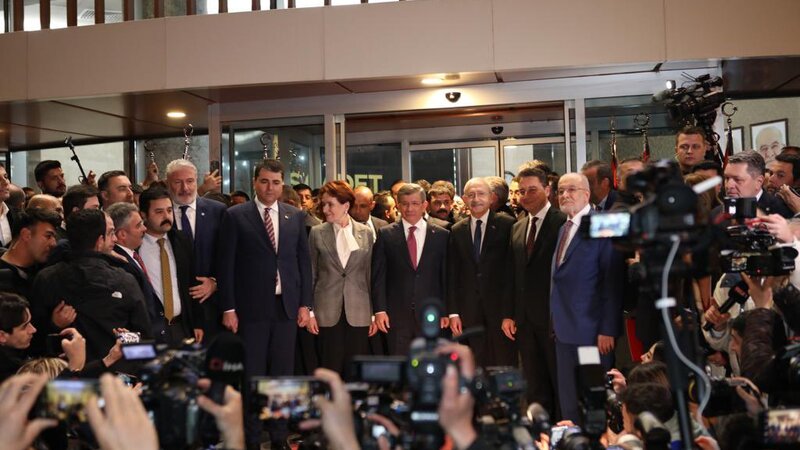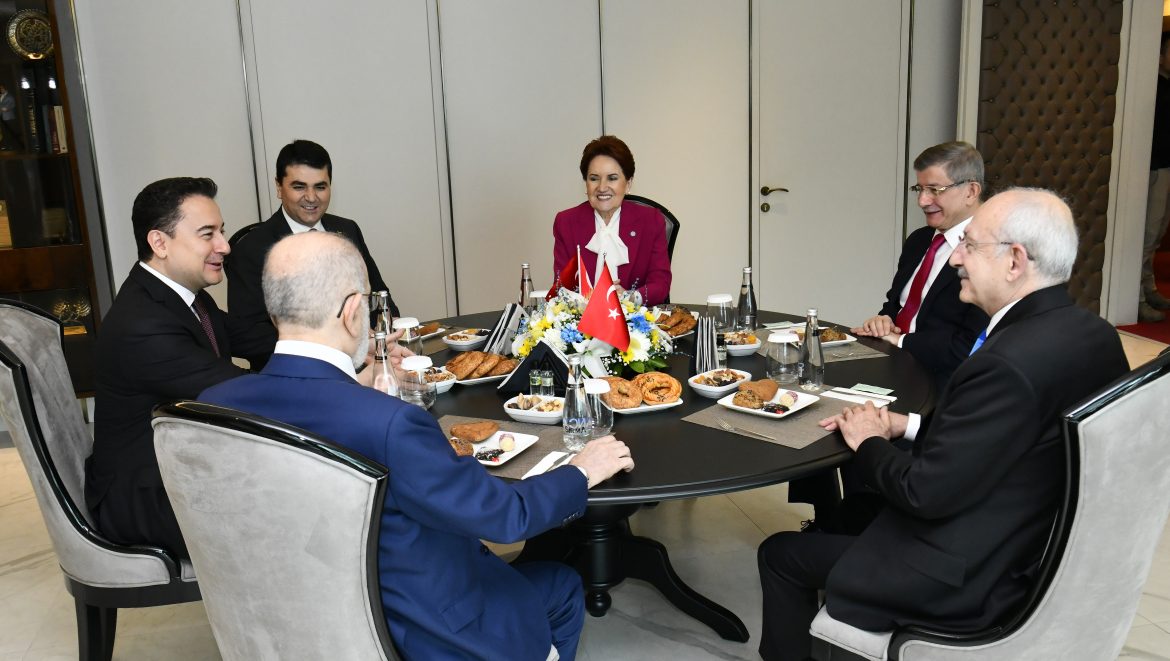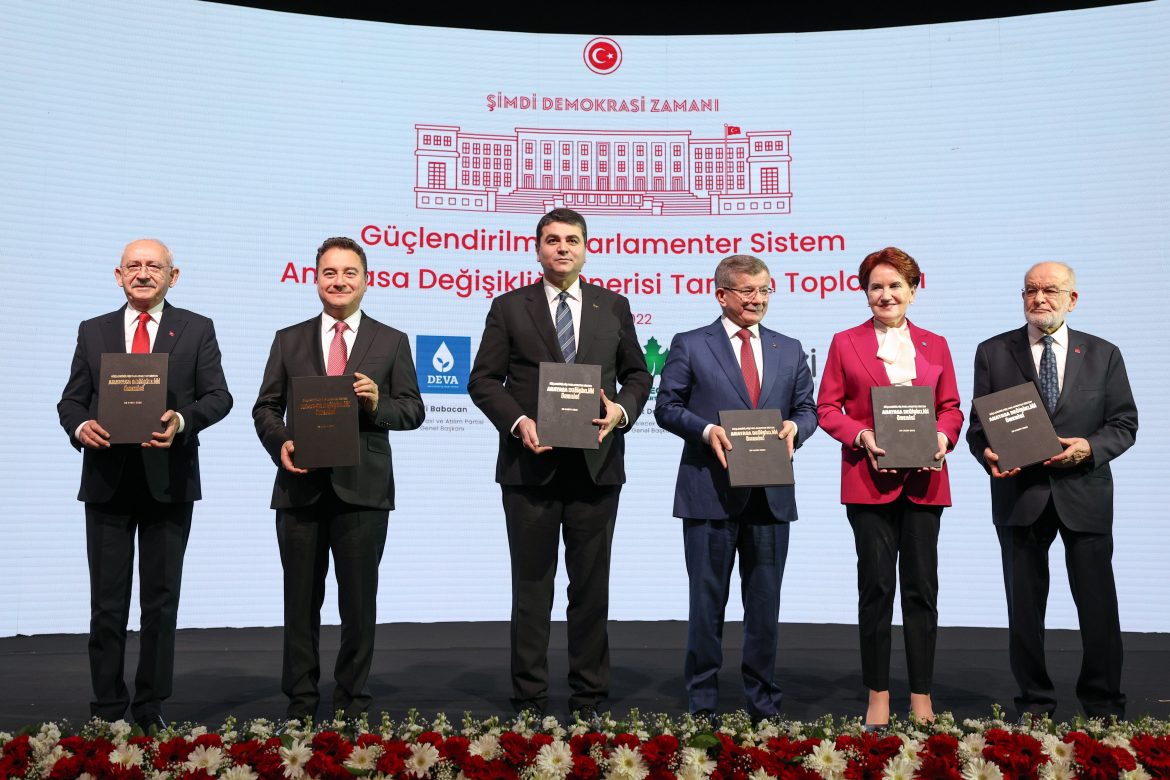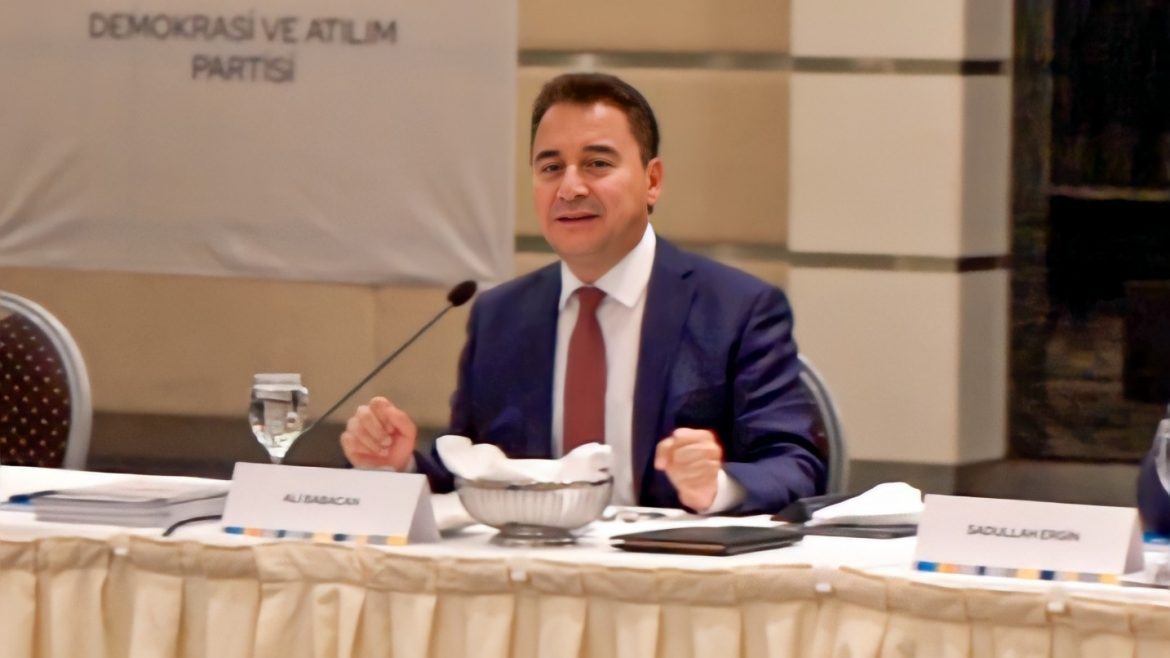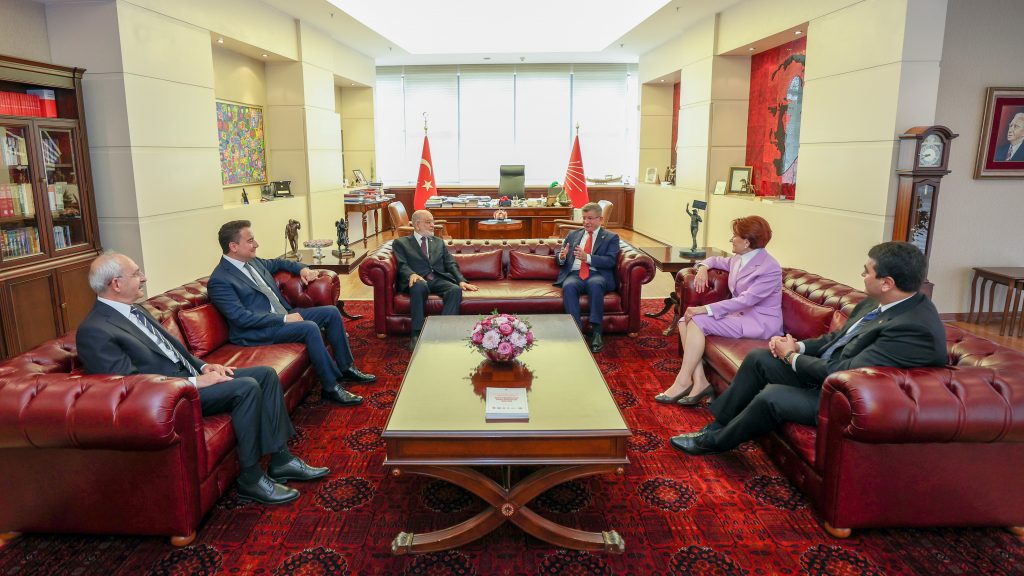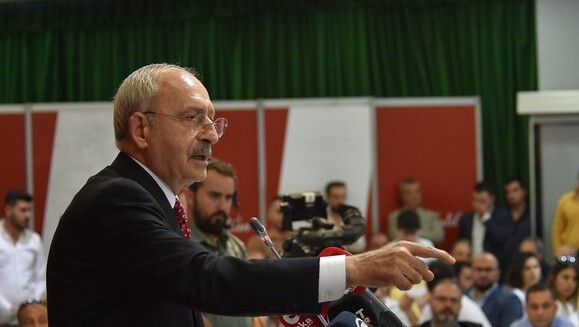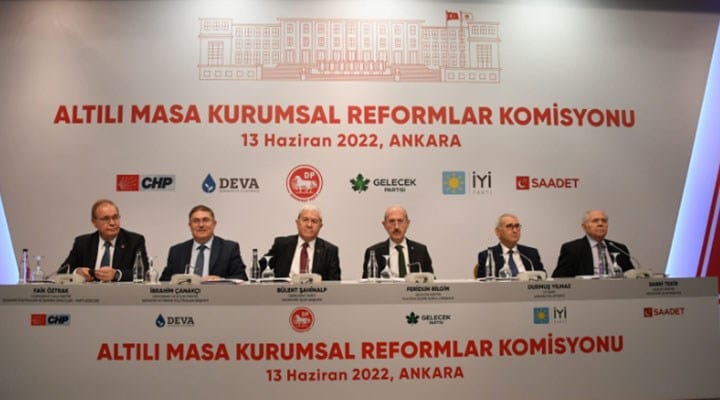In recent days, the political earthquakes in Türkiye have unfairly drawn attention away from the deep pain caused by the physical earthquake which shattered countless lives in the affected regions. Now, with elections just around the corner, political agendas are on full display, rife as usual with brazen moves and strategic gameplay. The reasons are
Türkiye’s six party opposition block held their 11th meeting on January 26, falling short of meeting high expectations with their joint declaration. The opposition cooperation that is often called the “Table of Six” has been regularly meeting since last February pledging to instate a “strengthened parliamentary regime” against the current “presidential governmental system,” which was
“All six parties are rivals, but the real rivalry is with the other side,” DEVA Party Leader Ali Babacan said on Oct. 3, at the press dinner in Ankara. The leader of one of the six parties that formed an alliance against President Tayyip Erdoğan and his ruling Justice and Development Party (AKP) in the
After a very turbulent few weeks, the six opposition parties that formed an alliance against President Recep Tayyip Erdoğan in the upcoming elections started the second round of talks hosted by main opposition Republican People’s Party (CHP) leader Kemal Kılıçdaroğlu on October 2. Before the meeting, all the parties in the “Table of Six” alliance
Statements from opposition İYİ (Good) Party leader Meral Akşener and Kurdish issue-focused Democratic People’s Party’s (HDP) imprisoned former co-chair Selahattin Demirtaş on September 13 strengthened the possibility that President Recep Tayyip Erdoğan’s competitor in the critical 2023 presidential elections will be main opposition Republican People’s Party (CHP) leader Kemal Kılıçdaroğlu. “The decision will be made
Turkey’s opposition block formed by the six opposition parties vowed to ensure independent monetary management in the event that they came to power in a new report announced on June 13. “The Institutional Reforms Commission” established by the six-party opposition block finished its first report which focused on the block’s reform propositions to be implemented
